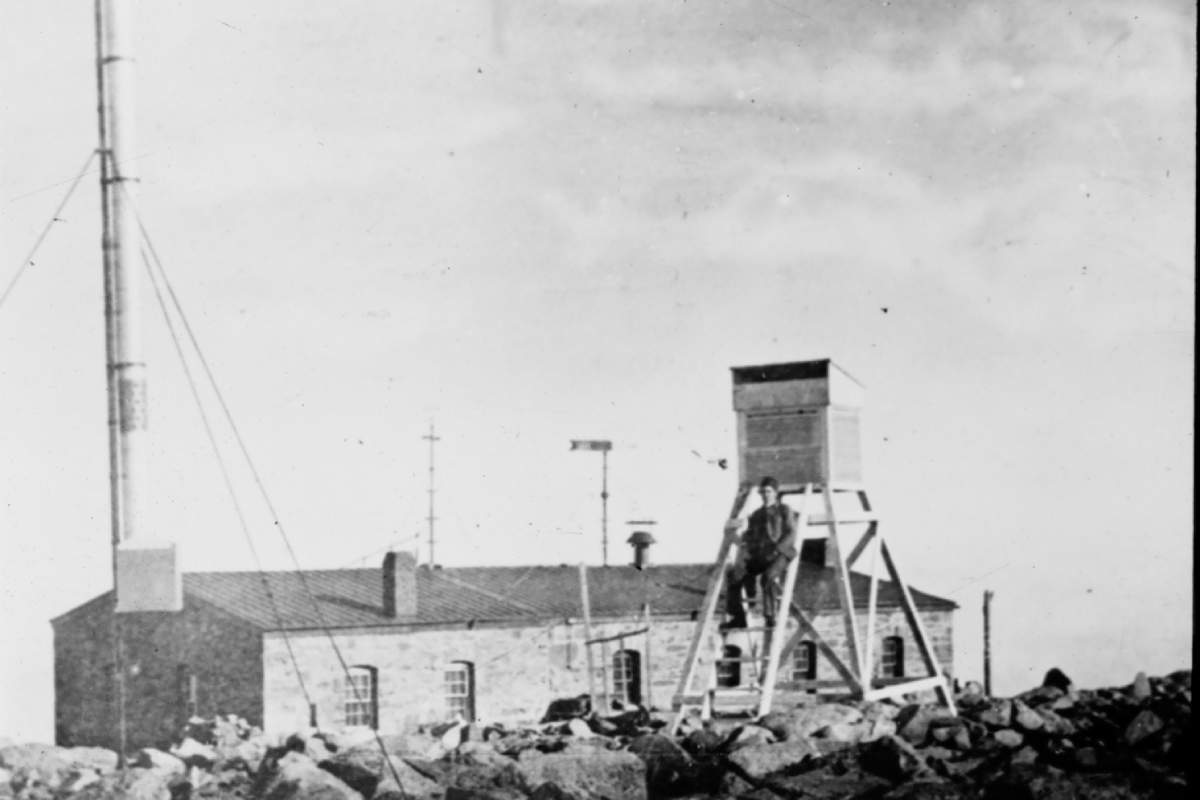
Peak Curiosity is a new, community-driven reporting series from 91.5 KRCC. We ask listeners to submit their questions about the Pikes Peak region and Southern Colorado, and then we answer them. Scroll down to the bottom of this post to submit your question!
For this installment of Peak Curiosity, we set out to answer a question from Colorado Springs resident, Kevin Tvrdy. Tvrdy asks:
Having lived in Colorado Springs for three-and-a-half years now, it has a very unique climate compared to other places that I've lived. I'm curious how that climate might change in the next hundred years, if climate change models hold.
One thing to establish right off the bat: predicting the effects of climate change is tricky.
"There are many plausible pathways for future climate and what we see coming out of the climate models is a big range," says Jeff Lukas, research integration specialist at Western Water Assessment, a NOAA Funded program at University of Colorado-Boulder. He has contributed to several reports on the projected impact of climate change in Colorado.
"I think you had 77 degrees in [in February] as a daytime high in Colorado Springs. Imagine that being in the upper 80s in February."
Lukas says, despite the variability, there are certain long term trends that are likely to play out in Colorado Springs over the next 100 years. "We can generate some very fine scale information from the climate models," he explains, "and the temperature part of it is very trustworthy because we expect a fairly uniform warming across the state."
Lukas says the extent of that warming by the year 2100 could be anywhere from three degrees Fahrenheit on the low end, to 11 degrees on the high end. But those are averages – what would an eleven degree warming feel like for a person living in Colorado Springs at the end of this century?
"We don't have a good analog in Colorado. Maybe the closest would be Las Animas, but they're not warm enough in the winter. So maybe more like Albuquerque. Some combination of Albuquerque, Las Animas, or maybe a bit of west Texas thrown in."
Lukas says as time goes on, it will begin to feel like the seasons are shifting, March will feel like April, or even May. And we can expect more weather reports like those we saw over the past few months, announcing record breaking highs in the upper 70s in Colorado Springs.
When I spoke to Lukas, he said warm snaps like those we saw this winter won’t necessarily become more frequent thanks to climate change, but they will be warmer -- possibly a lot warmer.

"You know I think you had 77 degrees in [in February] as a daytime high in Colorado Springs. And so imagine that being in the upper 80s in February."
Climate change is also likely to affect water supply in Colorado Springs. Much of the city's water comes from mountain snow melt, says Brett Gracely, Water Resource Manager for Colorado Springs Utilities.
"What's happening with precipitation, what happens with snow pack, is still a bit of a 50-50 proposition," he explains.
Climate models are unclear about whether precipitation will increase or decrease over the coming decades. But Gracely says temperature increases alone could impact CSU’s approach to meeting the needs of local water users.
"[Higher temperatures] will change the moisture content in the snow, it'll change the aerial extent of the snow cover, and in some way it'll change the seasonality of the snow cover. Ultimately that translates to stream flow for us, when the melt comes in the spring, and we'll need to adapt to those changes."

Gracely is reluctant to make any predictions about how life for water users in Colorado Springs might be different in the future as a result of climate change. But he says climate change is very much a part of CSU's long term planning equation.
The state of Colorado is also working to address the challenges posed by climate change. Taryn Finnessey, Senior Climate Change Specialist with the Colorado Department of Natural Resources, is in charge of that effort.
"We’re already seeing the effects of climate change in Colorado," she explained at a recent sustainability conference at UCCS. Finnessy laid out some of those effects: a 2.5 degree warming trend over the last 50 years, longer frost-free seasons, earlier spring runoff in the mountains. She also explained how future climatic changes could have cascading impacts on everything from agriculture to tourism to water temperature in the state.
"It can put stress on our ecosystems, and our fish," she told the audience. "Colorado is known for our cold water fisheries. Well if our water is not as cold, that can really impact our fish populations."
But for all the problems climate change may pose in Colorado, Finnessey, speaking after her presentation, also emphasized that new opportunities could arise. Warmer temperatures could mean "longer growing seasons, if the water's available," she explained. "There are certainly opportunities there, you know there are lots of warm climates that thrive, so it’s not necessarily looking at all change as bad."

Jeff Lukas, with Western Water Assessment, says people may even see some of the changes over the next few decades as pleasant.
"You know winters aren't aren't as harsh," he says. "This is kind of nice. We're getting the 60, 70 degree days in February more often."
But as we approach the middle and end of this century, he expects that to change.
He imagines a time in Colorado Springs when "summers have gotten really hot and even in May we're getting too many 90 degree days, It just doesn't feel right. So I think there will be a sense by the end of the century for people who lived through more of the 21st century will definitely have an experience that things have degraded."
That is, he says, unless we can achieve the lowest-end warming scenario projected by current climate models -- a proposition he's not sure is likely.
Thanks to Kevin Tvrdy for submitting this question.



